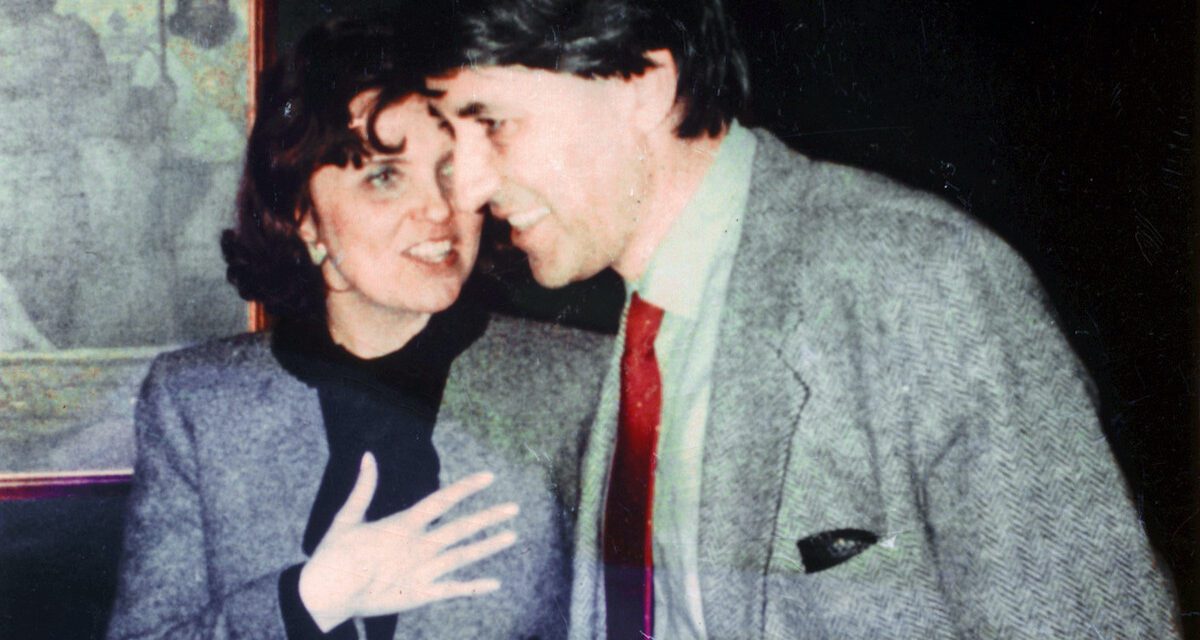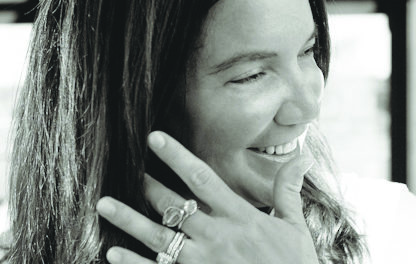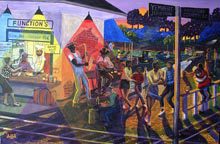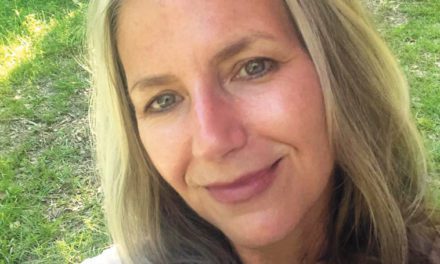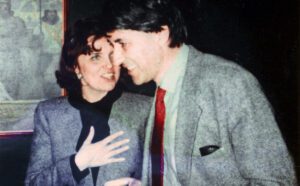
A young Mihai Radulescu with his wife, Marly Rusoff
I first met Mihai Radulescu through email. I thought his name was Michael.
It was about 10 or 11 years ago, I guess, and I was working for Pat Conroy as his “editorial assistant,” a title he insisted I use, as it sounded more impressive than plain ol’ “assistant,” or, more to the point, “typist.”
Along with typing his letters and manuscripts, Pat thought it would be nice if I got involved in the management of his website, an operation which, for him, was shrouded in complete and utter mystery. (It’s a well-known fact that Our Prince of Scribes was the King of Luddites.)
He gave me an email address for his “web guy,” and told me to get in touch. I knew nothing about this person. Pat gave me no background information nor warning.
I sent a warm, cheery email of introduction to my new colleague “Michael,” offering my help with the website – along with some ideas that Pat had asked me to pass along – only to receive a very chilly response. I can’t remember his exact words now, but I got the distinct impression that this “Michael” was a stern, humorless man with absolutely no interest in my warmth nor my cheer, and least of all, my help. In fact, he seemed positively offended by my very existence.
I reported this news to Pat. He erupted in laughter, saying, “Oh, that’s just Mihai. You gotta get to know him. He’s a teddy bear.”
Mihai? I thought I was dealing with Michael? I then learned that Mihai was Romanian – “The Prince of Romania,” Pat called him – and that he used the Anglo version of his name in professional correspondence, as it made life easier in the New York publishing industry where he and his wife, Pat’s literary agent Marly Rusoff, were big muckety-mucks.
Armed with this information, I tried working my Southern charm on Mihai again, at Pat’s urging. But still, our email communication was strained. Stilted. Borderline unfriendly. Looking back, I can see there was simply a language barrier between us; nuances were being lost in translation. We didn’t “get” each other. Eventually, we managed to form a working relationship of sorts, but it was cold.
Then I met Mihai in person.
It was about eight years ago, at the Pat Conroy at 70 Festival. He was walking into the USCB Center for the Arts, and I was walking out, and we all but collided. Long story short, we instantly adored each other, and that cold “working relationship” vanished into thin air, never to return.
It’s a truth I’ve come to take for granted that the people closest to Pat Conroy – his oldest and dearest associates – are often “characters” of literary proportions. Mihai Radulescu was no exception.
His recent obituary, written by his wonderfully eloquent wife, describes him as follows:
The son of a Greek mother, who was the daughter of an opera singer, and a Romanian father, who was a pharmacist and amateur musician, Mihai was the great grandson of Commander Gheorghe Pastia, a philanthropist and highly decorated war hero who served in the war that freed Romania from Ottoman Rule. The family was rich in vineyards, and early in the twentieth century, Pastia used the family wealth to build an Opera House and Regional Theater which he donated to his hometown of Focsani, a midsized city that sits in the wine region at the foothills of the Carpathian Mountains. This architecturally spectacular building, built over a century ago, remains a gathering place and home that celebrates music and the arts. The Romania into which Mihai was born was distinctly Latin in temperament and language, but also a Francophile country with ties to France that went back to the 1848 Cultural Revolution.
This was the backdrop that made Mihai the person he became: a lover of wine, people, music, beautiful architecture, and not least of all, freedom. After growing up under the thumb of one of the worst Communist tyrants of the past century, in a country where freedom of speech did not exist and where citizens could arbitrarily be imprisoned or tortured, Mihai became a passionate supporter of his adopted country as well as those in the American military who risk their lives to keep us free.
Much of this history was news to me upon reading the obit after Mihai’s death on January 6th. That’s probably because he didn’t talk about himself much; he was always way more interested in other people’s stories. Far from the chilly, formal “Michael” I’d met through email all those years ago, Mihai was jovial and funny and passionately curious. He cared deeply about . . . well, almost everything. Especially people.
Soon after Pat Conroy’s death in 2016, Mihai and Marly became part-time residents here – with hopes of becoming full-timers sooner than later – while working tirelessly to help found the Pat Conroy Literary Center.
They immersed themselves in Beaufort and made friends quickly. Mihai’s best pals were a group of prominent Black men – all community leaders – and I often saw them out together, usually at Saltus. Mihai called these men his “brothers,” and it was fascinating to listen in on their conversations, sometimes affectionate sparring over politics and other topics.
“They know I earned my politics behind the Iron Curtain,” the right-leaning Mihai once told me, “And I know they earned theirs growing up in the American South. We understand and respect each other.”
I still remember how those words brought me to tears – I don’t often cry on my bar stool at Saltus – and made me long for more such men in the world.
Mihai also had an active social life on Facebook, where his colorful comments earned him quite a following. Sometimes those comments were convoluted and confusing. He wrote in broken English – or maybe a better description is “baroque” English – but even so, his intelligence, humor and heart radiated from the screen. A few months ago, when Mihai stopped showing up in FB conversations, people from all over the country – even Europe – began messaging me to ask if he was okay.
He was not okay. He was very ill. Unfortunately, I didn’t know just how ill until his wife called to tell me he was gone.
Though Marly has stepchildren from a former marriage, she and Mihai had no children of their own. He always seemed wistful about that and was genuinely interested in other people’s kids. He never missed a chance to ask about my daughter, praise her, or engage her in conversation when he saw her. He was downright reverent about the bond between mothers and daughters.
Mihai was reverent about lots of things, actually. Including religion. He once saw a photo of me in my choir robe, with my music folder – it was taken on Easter morning, during the processional – and bugged me for several months thereafter to make it my Facebook profile pic. “It’s a radiant image!” he declared. “Angelic!” I told him I didn’t like it that much. He replied, “What? You think you look better than that in person?”
Did I mention the man was hilarious? Lord, I’ll miss him. We all will.
RIP, Prince of Romania.

